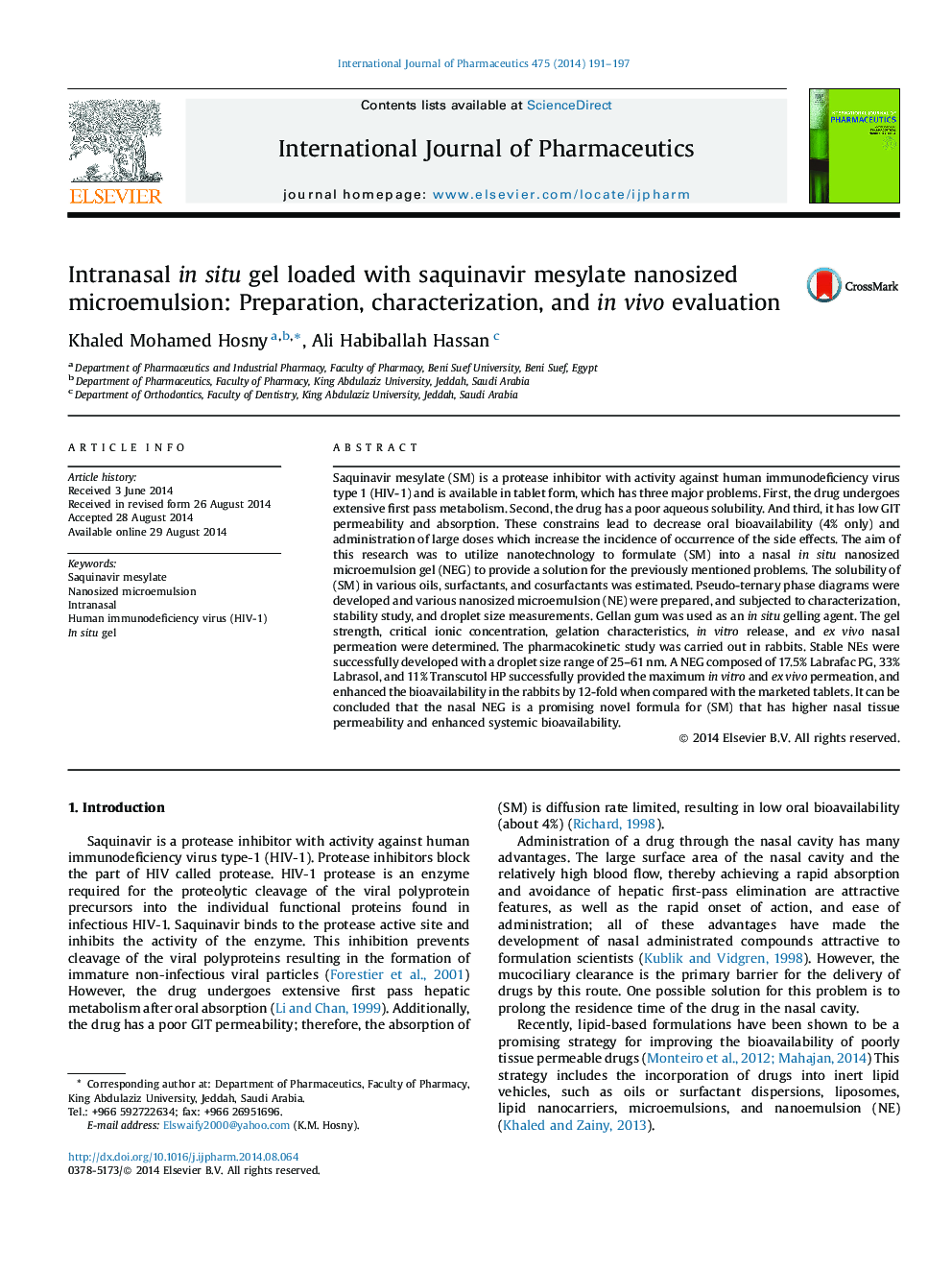| Article ID | Journal | Published Year | Pages | File Type |
|---|---|---|---|---|
| 2501641 | International Journal of Pharmaceutics | 2014 | 7 Pages |
Saquinavir mesylate (SM) is a protease inhibitor with activity against human immunodeficiency virus type 1 (HIV-1) and is available in tablet form, which has three major problems. First, the drug undergoes extensive first pass metabolism. Second, the drug has a poor aqueous solubility. And third, it has low GIT permeability and absorption. These constrains lead to decrease oral bioavailability (4% only) and administration of large doses which increase the incidence of occurrence of the side effects. The aim of this research was to utilize nanotechnology to formulate (SM) into a nasal in situ nanosized microemulsion gel (NEG) to provide a solution for the previously mentioned problems. The solubility of (SM) in various oils, surfactants, and cosurfactants was estimated. Pseudo-ternary phase diagrams were developed and various nanosized microemulsion (NE) were prepared, and subjected to characterization, stability study, and droplet size measurements. Gellan gum was used as an in situ gelling agent. The gel strength, critical ionic concentration, gelation characteristics, in vitro release, and ex vivo nasal permeation were determined. The pharmacokinetic study was carried out in rabbits. Stable NEs were successfully developed with a droplet size range of 25–61 nm. A NEG composed of 17.5% Labrafac PG, 33% Labrasol, and 11% Transcutol HP successfully provided the maximum in vitro and ex vivo permeation, and enhanced the bioavailability in the rabbits by 12-fold when compared with the marketed tablets. It can be concluded that the nasal NEG is a promising novel formula for (SM) that has higher nasal tissue permeability and enhanced systemic bioavailability.
Graphical abstractFigure optionsDownload full-size imageDownload high-quality image (72 K)Download as PowerPoint slide
